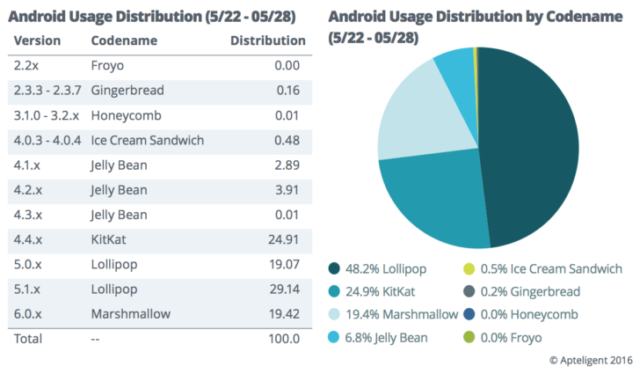Most of the problems Android stem from the open nature of the system.

Quickly, list the main issues Android! Are you finished? Good. Chances are good that you mentioned fragmentation by device version and form factor and the lack of timely updates. Another question: how can the situation be rectified? I’m sure you said there’s nothing much to be done. And this is understandable. Android is an open system, which means that when Google releases a new version of its OS, OEMs and operators can redesign it however they like. This leads to a worsening of the situation with fragmentation (manufacturers include this code in all devices, regardless of form factor) and updates (due to external and structural changes in the code, Google cannot directly roll out the update to such devices).

The situation seems to be improving a little.
The update issue has become a real sticking point. Apple is able to update 85% of its devices in a year, while Google's similar indicators do not exceed 10% during the same time. The upgrade takes up to four years to fully cover the entire ecosystem. In the world of technology, this is an incredibly long time. Using the example Android, you can see in practice what chaos Linux would turn into if it enjoyed widespread popularity among hardware manufacturers. Someone somewhere has to take control of the situation and put the interests of the platform above market share and profit.
So, will the ecosystem Android always be in such a mess? Probably no. One of the options for solving the problem for Google could be a step to exercise full control over Android and turn the latter into a closed project. 'So stop !! Wasn't the open nature of the system the key to success Android? ' Yes, it was so, but now it is no longer relevant.
In the early stages of its OS development, Google needed OEMs and vice versa, creating a high-quality smartphone is not a trivial task at all, for which the company required the experience of manufacturers such as Samsung, LG, Motorola and Sony. Today, a high-quality smartphone can be easily assembled by Foxconn, moreover, it is cheaper than the listed manufacturers.
If you think that Google will not take such a step, then I have to upset you. Market analyst Richard Windsor notes that most of the innovations in Android will bypass the AOSP code and go to Google Mobile Services.
 Arbor # 1: About updating devices from Android
Arbor # 1: About updating devices from Android
Windsor clarifies that Google, if necessary to justify its actions, can call its confrontation with Oracle a catalyst for the transition from an open nature Android to a closed one. Closed Android will not mean a refusal to use the OS by large manufacturers. In the end, Google can license them to use the code, which it does when licensing access to the GMS. On the other hand, what will change for such players after the mentioned transition? Okay, there might be a slight limitation on freedom of action, but the ability to quickly update devices and reduce the cost of personalizing code will outweigh any disadvantages. Any manufacturer that fails to provide updates will play with fire, especially if a competitor has a similar bonus.
From the point of view of telecom operators, in my opinion, there will be no special objections either. They are also not averse to customizing Android and adding their own branded software to it, but they are not in a position to tell Google what to do. In any case, Google will always be able to add functionality to the OS that allows both manufacturers and carriers to customize and personalize Android without affecting the upgrade process.
There may be other positive implications for Google. For starters, access to the public Android will be closed for companies such as Amazon. As a result, they will have to work on their own code, which will affect the cost of the products. Also, the patent license payments, which Microsoft have agreed with the manufacturers, will become irrelevant and which bring in billions of dollars annually. Naturally, Google and Microsoft will come to some kind of agreement, but Google will not give up as easily as the hardware vendors did, which would mean lower profits for Microsoft. Licensing to Google greater control over the hardware on which it will work Android. There will be no more junk that barely pulls the OS and devices based on years old versions without the hope of updating.
In short, Android is a mess, and given the changing environment, there is no reason for Google to continue to maintain an open source operating system that often fails the competition.
Original material by Adrian Kingsley-Hughes.
There is something rational in the opinion of the author, Google could quite possibly benefit from the transition to closed source. Yes, this is not at all familiar, but users of devices with Android have long been jealous of the owners of iOS – gadgets that quickly receive updates, albeit not always having a good effect on devices, but still. In the next issue of the Gazebo we will get acquainted with the opposite opinion, but for now I propose to discuss whether the game is worth the candle and whether the rejection of an open system will actually play into Google's hands?
